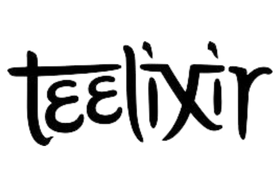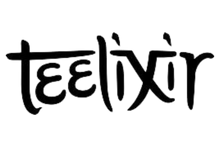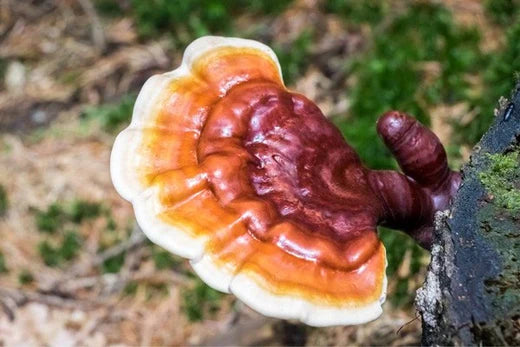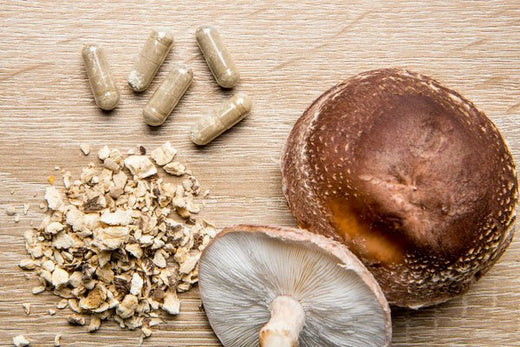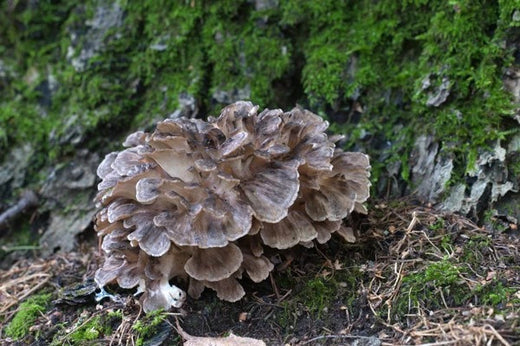Herbal Medicines Safety Aspects For Pregnant and Breastfeeding Women

When it comes to pregnancy and breastfeeding, the Western approach to herbal medicine is typically limited to treating symptoms like nausea, anxiety, and aiding in childbirth. But in traditional texts from China and India, herbal medicine has a much richer context of use during pregnancy.
Unfortunately, scientific studies on the use of adaptogens, medicinal mushrooms, and tonic herbs during pregnancy are essentially nonexistent for ethical reasons. So, while there is little scientific understanding about the safe and appropriate use of medicinal herbs during this exciting stage of life, there are still many questions to be answered.
What herbs are safe during pregnancy? Which supplements should be avoided? How can I boost fertility and increase the chances of getting pregnant fast? This article aims to provide answers to these questions by utilizing historical and traditional texts, as well as contemporary information.
Dr. Aviva Romm, a renowned expert in the field of herbs and pregnancy, suggests that most herbs have a high safety profile with little evidence of harm. And, for pregnant moms experiencing minor symptoms or discomforts, natural remedies may be gentler and safer than over-the-counter or prescription pharmaceuticals.
However, it's important to be smart and safe when using herbs during pregnancy. At the end of the article, you'll find a list of references and recommendations to explore further.
Disclaimer: The information provided is for educational purposes only and should not be construed as medical advice. If you're pregnant or nursing, be sure to discuss any changes to your health regimen or diet with your primary healthcare practitioner.
Table of Contents
-
Male and Female Fertility Improvement
-
Pre-pregnancy planning and conception
-
18 Powerful Herbs naturally Boosting Fertility
-
Body Cleansing Process to Improve Fertility Chances
-
Key Nutrients and Foods to Eat When Trying to Conceive (Men and Women)
-
The Best Time To Get Pregnant
-
Pregnancy Support in the First Trimester
-
Safe Herbs to Take During Pregnancy
-
B1 Category Herbs
-
The Calming Nature of Reishi benefiting Mother and Child
-
Postpartum Support
-
Recommended Safe Herbs During Postpartum
-
Rebuilding Jing in Postpartum
-
Understanding Placentophagia
-
Best Food Recommended For breastfeeding Mothers
-
Milk Nutrition and Production Boosting Herbs and Superfoods
-
Conclusion
-
Book Recommendations and References
Male and Female Fertility Improvement
When it comes to preparing for conception and boosting fertility, many people don't realize that it's just as important for men to prioritize their health as it is for women.
From the moment we leave our mother's womb, our bodies are exposed to a world full of toxins and pollutants found in the air, water, food, and our home environment. Yet, we often expect our bodies to function at their best regardless of our physical and mental health. We want to conceive naturally and quickly, but when it doesn't happen, it can cause great emotional distress, which further impedes the woman's ability to become pregnant.
To improve your fertility journey and prepare your body for pregnancy, I recommend working with a practitioner ahead of time to cleanse your body and mind, promote homeostasis, and give you the best chances of bringing a healthy baby into the world.
Pre-pregnancy planning and conception
These are the most important and beneficial moments for both men and women to add adaptogens, medicinal mushrooms, and tonic herbs to their diet. Herbs for liver detox, in particular, are highly recommended.
These powerful and ancient herbs can help strengthen the three treasures - Jing, Qi, and Shen - which correspond to and nurture three basic levels of life: the reproductive, metabolic, and spiritual. Tonic herbs can also help strengthen weakened systems, support liver and kidney function, provide nutrients to build up stores, decrease stress levels, balance hormones, and promote overall well-being and happiness.
In our society, we often focus on treatment rather than prevention. However, during the pre-pregnancy phase, it's important to prioritize our well-being (both men and women) while trying to conceive. Even if you're not actively trying to conceive, it's still important to consistently support your body with the right foods and herbs that will bring you closer to balance and optimization.
When the time is right, your body will be a strong, resilient vessel ready to create and sustain new life. So, let's take the time to prepare our bodies and minds for this beautiful journey ahead!

18 Powerful Herbs naturally Boosting Fertility
Let's talk about some amazing herbs and mushrooms that can improve your fertility and help you conceive. These natural remedies have been used for centuries and can be a great addition to your pre-conception routine.
Vitex
Also known as Chasteberry, this herb is a popular choice for improving female reproductive health. It works by increasing luteinizing hormone (LH) which is responsible for driving ovulation and nourishing the corpus luteum. The corpus luteum releases estrogen and progesterone, regulating the entire reproductive and menstrual cycle. Vitex has a hormonal-like effect that can shift the balance between progesterone and estrogen, favoring progesterone and improving fertility. It's also great for regulating menstrual cycles and helpful for women with endometriosis.
Next, we have Cordyceps Mushroom, which has been used for centuries to improve fertility in both men and women. It increases levels of progesterone in women and testosterone in men, making it a great option for couples trying to conceive. It's also a lung and kidney tonic, improving cardiovascular health and supporting the adrenals.
Shatavari
This is another fantastic herb for women's reproductive health. Literally translated to "she who has 100 husbands," it's been used for centuries in Ayurvedic medicine. Shatavari is a women's tonic that helps regulate hormones and supports the reproductive system.
Maca
We have Maca, also known as Peruvian Ginseng. Maca stimulates the hypothalamus, pituitary gland, and ovaries, increasing the body's production of estrogen. It also lowers cortisol levels and adrenocorticotropic hormone - stress hormones. This can be helpful for women who are struggling to conceive due to stress.
Tribulus
Tribulus (Tribulus Terrestris) is a herb traditionally used as a male tonic as it helps increase testosterone levels and sperm function. In Western medicine, it is used for the treatment of female reproductive difficulties, specifically amenorrhea. Tribulus also stimulates FSH (follicle-stimulating hormone) in women, which initiates ovulation, and hormone release, and improves conception.
Ashwagandha
Ashwagandha (Withania Somnifera) is a revered Ayurvedic herb that is a potent HPA axis modulator and stress adaptogen. It works to decrease stress hormones and has been shown to improve sperm motility and increase sperm count in men.
He Shou Wu
Root obtained from He Shou Wu (Polygonum Multiflorum) helps strengthen connective tissue, and the skeletal system and builds blood. It is a nutritive food rich in zinc and iron. It improves sperm function, and ovary function, and increases testosterone levels in men.
Schizandra
Wild Schizandra berry (Schisandra Chinensis) is another powerful adaptogen that optimizes liver function and detoxification. It assists in the metabolism and excretion of toxins that add chronic stress and inflammation to the body. Schizandra is also a superior herb for stress and adrenal function. It helps calm the nervous system, enters all twelve meridians, and nourishes all five treasures; Qi, Xue (Blood), Jinye (Body Fluids), Jing (Essence), and Shen (Spirit).
Chaga Mushroom
Chaga mushroom (Inonotus obliquus) is a nutrient powerhouse and potent antioxidant food that supports healthy DNA and cellular function. It is beneficial in balancing blood cholesterol and sugar levels. Chaga potentially protects mothers from Gestational Diabetes and assists the microbiome and metabolism of excess hormones, specifically androgens that are present in women with PCOS.
Astragalus root
Astragalus root (Astragalus Membranaceus) is the supreme protector and a potent immuno-modulator that works to balance and support the immune system. Astragalus improves the body's resiliency and protects against invading pathogens and bacteria. A strong and healthy immune system will eventually be passed onto a baby during breastfeeding and if a vaginal birth occurs.
Licorice root
Licorice root (Glycyrrhiza glabra) modulates Oestrogen levels and acts as an adaptogen with its dual-directional activity by increasing Oestrogen levels if they’re too low or reducing levels if they’re too high. Additionally, it helps decrease cortisol.
Reishi Mushroom
Reishi Mushroom (Ganoderma Lucidum) is nervine and is beneficial in calming an overactive nervous system and mind. Reishi also promotes healthy sleep and nourishes Shen, our spirit.
Pine Pollen
Pine Pollen (Pinus Massoniana Lamb) has been shown to boost testosterone levels in males and enhance libido in both sexes. Pine pollen is also rich in micronutrients.
Damiana
Damiana (Turnera Diffusa) has a positive aphrodisiac effect and helps improve libido and sexual energy.
White Peony
White Peony (Paeonia Lactiflora) has long been used in TCM for its beneficial effects on female fertility and has a stimulatory effect on ovulation. White Peony is an estrogen modulator, and menstrual cycle regulator, and improves the follicular phase.
Dong Quai
Dong Quai (Angelica Sinensis) is another ancient tonic herb that is very beneficial for women's health. Dong Quai has traditionally been used to treat dysmenorrhea and amenorrhea. Dong Quai helps build and nourish the blood, stimulates estrogen, and supports a healthy pregnancy by easing delivery; toning the uterus.
Nettle
Nettle (Urtica dioica) the root and leaf of the stinging nettle plant are beneficial in balancing hormones as well as increasing iron levels. Nettle is also beneficial for women who suffer from heavy menstrual bleeding and helps to reduce the amount of blood flow during periods.
Pearl
Pearl (Margarita) is very rich in micronutrients such as calcium, magnesium, silica, and proteins and nourishes the skin. It has been traditionally used for its anti-aging and beautifying properties. Pearl also supports healthy bones, teeth, and nails.

Body Cleansing Process to Improve Fertility Chances
Heavy Metal Detox
Heavy metals can accumulate in the body and cause various health problems. Incorporating certain foods and supplements into your diet can help gently detoxify the body of heavy metal toxicity. Here are some options:
Celery
Celery contains antioxidants and has diuretic properties that can help flush out toxins from the body, including heavy metals.
Parsley
Parsley is rich in antioxidants and has been shown to have chelating properties, which means it can bind to heavy metals and help remove them from the body.
Cilantro
Cilantro is another herb that has chelating properties and can help remove heavy metals from the body. It is also a rich source of antioxidants and essential minerals.
Citrus
Citrus fruits like lemons, limes, and oranges are rich in vitamin C, which helps support the body's natural detoxification processes. Vitamin C also helps protect the body against heavy metal toxicity.
Binders and Chelators
Binders and chelators such as zeolites, clay, and activated charcoal can bind to heavy metals in the body and help remove them through the digestive system.
Fulvic Trace Minerals
These are a type of mineral supplement that can help the body absorb nutrients more effectively, including those that help support detoxification.
High Antioxidant Foods
Antioxidant-rich foods such as Chaga mushroom, matcha green tea, turmeric root, and organic blueberries can help protect the body against heavy metal toxicity and support the body's natural detoxification processes.
Other Ways to Remove Heavy Metals
In addition to incorporating detoxifying foods and supplements into your diet, there are other ways to remove heavy metals from the body. Infrared saunas can help promote sweating, which can assist in the removal of heavy metals. Lymphatic brushing can also help stimulate the lymphatic system and aid in the removal of heavy metals such as lead, aluminum, arsenic, cadmium, and mercury.
Excess Toxins and Allostatic Load Elimination
Reducing exposure to toxins is an important aspect of maintaining optimal health. Here are some eco-friendly tips to help you reduce your exposure to toxins:
Choose Organic Produce and Animal Products
Whenever possible, it's important to choose certified organic produce over conventional produce that is often laden with pesticides, herbicides, fungicides, and glyphosate. This includes organic, grass-fed, and wild-caught animal products.
Evaluate Personal Care Products
Take an honest look at the personal care products you are using. Many of these products are loaded with endocrine and neurotoxic ingredients such as parabens, phthalates, heavy metals, artificial fragrances, colors, and other synthetic ingredients that can be harmful to your health. Try switching these toxic products for eco-friendly and greener solutions.
Use Natural Cleaning Products
Cleaning products are another source of toxic exposure in many households. Try switching to natural cleaning products, such as vinegar, baking soda, and essential oils, to reduce exposure to harmful chemicals.
Opt for Eco-Friendly Alternatives
There are many eco-friendly alternatives available for common household items such as food storage containers, drinking bottles, and personal hygiene products. Consider switching to products made from sustainable and non-toxic materials.
Optimize Sleep and Reduce Stress
Stress and lack of quality sleep are two major obstacles to fertility and conception. Chronic stress can take our body out of a fertile state and into a fight-flight-freeze nervous state, causing blood flow to be redirected, digestion to shut off, libido to decrease, and a whole-body message that screams, "it's not safe to have a baby right now." Here are some tips to reduce stress and optimize sleep for fertility:
Identify Stressors
Identify what stressors are present in your life, both conscious and subconscious stressors. This can include physical, emotional, spiritual, social, psychological, and perceived stressors. Make a list and take note of what you can do to release that stress, whether it's changing behaviors, delegating tasks, asking for help, setting up systems, creating action plans, or challenging limiting beliefs and fears.
Prioritize Sleep
Sleep is the secret sauce to life, and optimizing sleep is essential for fertility. Two key steps to improving sleep are creating a regular bedtime and creating a dark and cool sleeping environment.
Create a Regular Bedtime
Routine is what our body thrives off. Set up a regular 30-minute window which informs your brain and body that sleep is approaching and this will enable a consistent transition into sleep. Stick to this routine as much as possible, even on weekends.
Create a Dark and Cool Sleeping Environment
As bedtime approaches, start turning lights off or down, put away phones, turn off the TV and other electronic devices. This act helps inform our brain that it's nighttime and time to wind down to rest. Too much light and other electronic frequencies disrupt this message. Additionally, a cooler bedroom supports better sleep, 18-20 degrees Celsius is the sweet spot.
Your Home Environment Inventory
Our home environment is often filled with toxins and chemicals that we may not even realize. These pollutants can be harmful to our health, but a few simple changes can help eliminate our constant exposure to them. Here are some tips:
Eliminate Black Mold
If there is a history or presence of black mold in your home, it's important to hire a professional to eradicate the mold entirely from your home.
Reduce EMF Exposure
Try reducing your exposure to electromagnetic fields (EMF) by using rock salt lamps to offset the constant barrage of EMF frequencies surrounding the body.
Add Natural and Warm Light
Add more natural and warm light wherever possible to create a cozy and inviting environment while reducing exposure to harsh artificial lighting.
Introduce Plants
Adding plants to your home can oxygenate the air and help remove harmful toxins and chemicals from the environment.
Use Eco-Friendly Bedding
Switching to eco-friendly and non-toxic bedding can help reduce exposure to harmful chemicals found in traditional bedding.
Install Water Filters
Connect water filters to kitchen taps and showers to reduce exposure to toxins and chemicals found in tap water.
Use Non-Toxic Cleaning Products
Switching to non-toxic and eco-friendly cleaning products can help reduce exposure to harmful chemicals found in traditional cleaning products.
Reduce Plastic Usage
Reducing the number of plastics you cook with and eat and drink from can help reduce exposure to harmful chemicals found in plastic.
Identify Any Nutritional Deficiencies and Imbalances
Are you someone who suffers from headaches, migraines, constipation, IBS, eczema, psoriasis, chronic fatigue, anemia, poor wound healing, or other similar conditions? These symptoms could indicate low-grade inflammation and nutritional deficiencies in your body.
To address these issues, consider consulting with a practitioner who can help you identify the root cause and restore balance in your body. Alternatively, you can take steps on your own to replenish your nutritional stores and improve your fertility and conception prospects.

Key Nutrients and Foods to Eat When Trying to Conceive (Men and Women)
Some key nutrients and their food sources that can enhance your chances of conceiving are:
- Selenium: found in brazil nuts, sunflower seeds, beef, and tuna.
- Zinc: present in oysters, pumpkin seeds, organic eggs, sunflower seeds, herring, mushrooms, cacao, etc.
- CoQ10: obtained from grass-fed red meat, tuna, sardines, olive oil, walnuts, broccoli, cabbage, spinach, strawberries, grapefruit, apples, etc.
- Omega-3 fatty acids: available in walnuts, flaxseed, chia seeds, wild-caught salmon, sardines, mackerel, herring, etc.
- Folate: found in all leafy green and cruciferous vegetables, such as spinach, kale, broccoli, Brussels sprouts, etc.
- Vitamin C: abundant in all yellow, orange, and red fruits and vegetables, such as bell peppers, citrus fruits, tomatoes, etc.
- Vitamin D: can be synthesized by the body with the help of sunlight or obtained from food sources like Shiitake mushrooms.
- Alpha-lipoic acid: present in broccoli, spinach, organ meats, Brussels sprouts, etc.
- Fulvic minerals: trace minerals that can enhance nutrient absorption and utilization, available in Fulvic Ionic Minerals or similar supplements.
The Best Time to Get Pregnant
Women experience two primary phases during their menstrual cycle: the ovulatory phase and the menstrual (menses) phase. Within these two phases, women undergo four phases: the luteal, ovulatory, menstrual, and follicular phases.
Optimal Time for Pregnancy
Ovulation usually occurs around day 14 of a woman's cycle, where day 1 is the first day of her period. Ovulation occurs when a woman's follicle has matured and releases an egg. The egg travels down the fallopian tubes and waits for a healthy and eager sperm to initiate fertilisation.
For couples trying to conceive, it is recommended to have sex during the days before and after ovulation (day 14) since sperm can survive in the vagina for 2-3 days.
Pregnancy Support in the First Trimester
During the first trimester of pregnancy, it is recommended that no herbs be taken. Using herbs during this phase may cause toxicity to the mother, which may indirectly affect the foetus, toxicity to the foetus, teratogenesis, increased miscarriage risk, and poor neonatal health.
Safe Herbs to Take During Pregnancy
Herbal medicine is predominantly incorporated into pregnancy care based on anecdotal evidence, clinical application, and traditional texts, with contemporary texts and studies mostly suggesting to avoid herbs throughout the pregnancy. However, in some cultures, the use of herbs throughout pregnancy is common.
Safe herbs that can be taken during pregnancy include:
- Red raspberry: the oldest and most known plant utilised during pregnancy, which relaxes the uterine musculature and assists labour and childbirth.
- Echinacea: used to help prevent colds and flu at the first signs of coming down.
- Ginger root: used for nausea.
- Chamomile: used to calm anxiety and promote sleep.
- Always consult with a healthcare practitioner if you have further questions or concerns, and keep in mind that everything is your choice, and it's hard to find answers on a topic that is so individualistic in beliefs, values, and biology.
B1 Category Herbs
Although B1 herbs have been used in clinical research, they have only been taken by a limited number of pregnant women. However, studies have shown that they do not increase the frequency of malformations or other direct/indirect harmful effects on a growing foetus.
Safety During Pregnancy
It's important to emphasise that safety is paramount during pregnancy, and you should always do what you intuitively feel is best for you. If you have any questions or concerns, please consult with your healthcare practitioner.
B1 Herbs
The following herbs fall under the B1 category and can be considered for use during pregnancy:
- Codonopsis (Dang Shen): traditionally used to prevent weakness, deficiencies, tiredness, and fatigue, strengthen the stomach, spleen qi, appetite, digestion, build blood, and beneficial for anaemia. Codonopsis is also great postpartum to rebuild and strengthen the Qi. It can also help normalise blood sugar, which can be beneficial in women who experience gestational diabetes.
- Panax Ginseng: used in Traditional Chinese Medicine (TCM) during pregnancy, and beneficial for low back pain, fatigue, exhaustion, HPA dysregulation/stress, and is stimulating, and improves circulation.
- Schizandra berry (Schisandra chinensis): used to assist childbirth and labour and strengthens rhythmical contractions of the uterus. Schizandra should only be used to help and assist childbirth.

The Calming Nature of Reishi benefiting Mother and Child
Reishi mushroom is one of the most widely studied herbs in the world and is renowned for its ability to promote calmness of mind, nourishment, and restorative qualities, making it a superb adaptogen and Shen (spirit) tonic. It is also known to strengthen the immune system, reduce stress, and improve the connection to one's spirit and purpose, leading to increased fulfilment in one's life.
Although not clinically stated as a "safe" pregnancy herb, Reishi has many anecdotal reports of mothers using the mushroom during pregnancy, leading to the birth of "reishi babies." Master Herbalist Ron Teeguarden has spoken about these babies, stating that they appear more "calm and focused," have little inflammation, cry less, and are more in awe of their surroundings.
In the book Healing Thresholds: A Modern Journey into Taoist Health Philosophy by Rehmannia Dean Thomas, it is mentioned that within Asia, Reishi is taken as an immune builder by pregnant women to protect the mother and her growing foetus. Reishi is a very gentle and nourishing adaptogen that can be beneficial in calming both mother and baby, reducing anxiety, sleeplessness, and building the immune system.
Personal Choice
It is important to note that adopting herbs into your pregnancy is a personal and individual choice. Every woman's body is unique, and supplementing with herbs may affect individuals differently based on their biochemical and energetic natures. Therefore, it is always recommended to consult with your healthcare practitioner before taking any herbs during pregnancy.

Postpartum Support
The Postpartum Phase
After childbirth, the postpartum phase begins, which is split into three phases: the acute phase (first 6-12 hours post-childbirth), subacute phase (2-6 weeks), and delayed phase (up to 6 months for some women). During this period, the body readjusts to motherhood and a body that no longer carries a foetus.
Importance of Supporting Mother's Health
Supporting all systems (endocrine, digestive, lymphatic, cardiovascular, etc.) and the overall wellbeing of the mother is crucial during the postpartum phase for both mother and baby. It's all about restoring vitality and strength to the mother, nourishing the organs and blood, as well as the Jing, Qi, and Shen.
Postpartum Depression
Postpartum depression (PPD) is a common experience for many mothers during this phase. PPD can range from a slight decrease in joy, happiness, identity, and ideas of self to a severe, crippling depression that is uncontrollable. Although there are numerous ideas surrounding why PPD occurs, nourishing oneself is crucial during the postpartum phase to restore balance to neurotransmitters and improve mood.
Nourishment Goes Beyond Food
Nourishment is not just nutritionally from foods and herbs but also includes self-compassion, identifying and dismissing self-judgement, giving oneself space to learn, grow, evolve, and not compare, and understanding that one will get through this. Therefore, it is important to focus on nourishing oneself to nourish the baby in all possible ways during the postpartum phase.
Recommended Safe Herbs During Postpartum
There are various tonic herbs that can assist with postpartum recovery and regeneration of the mother. Some of these herbs include:
Astragalus root (Astragalus racemocus): beneficial in postpartum to assist recovery from severe blood loss, uterine bleeding, and organ prolapse. It is also best used to prevent viral and bacterial infections, but not recommended for those with auto-immune conditions.
Ashwagandha (Withania somnifera): used in Ayurveda to restore strength and support the nervous system. Being a top adaptogen, Ashwagandha helps new mothers adapt by buffering anxiety and stress, providing support, and improving milk production and post-natal depression.
Reishi mushroom (Ganoderma lucidum): regarded as one of the most potent anti-stress tonic herbs in Taoism and Traditional Chinese Medicine (TCM). Reishi calms the nervous system, decreases levels of cortisol in the bloodstream, assists breastfeeding, improves mood, nutrient utilization, immunity, and sleep. Reishi is also the greatest Shen Tonic, positively improving our connectedness to ourselves and our mental and emotional wellbeing.
Stinging Nettle (Urtica dioica): a highly nutritive plant rich in iron, which helps reduce fatigue, support breast milk production, and increase mood. Iron is also a key player in the production of neurotransmitters dopamine and serotonin.
Rebuilding Jing in Postpartum
In Traditional Chinese Medicine (TCM), Jing is the foundational treasure that translates to our primal essence or life force energy. Jing is our "savings account" of long-term energy, which is depleted through excess stress, worry, exhaustion, overwork, lack of sleep, and childbirth. Jing is connected with longevity, vitality, sexual energy, and creative powers, and can be nourished and preserved using tonic herbs and adaptogens such as Cordyceps mushroom, Reishi mushroom, He Shou Wu root, Eucommia bark, and more.
During pregnancy, kidney Jing is greatly depleted as the mother transfers her Jing energy to the baby during childbirth and breastfeeding. It is vital to decrease any stressors in your life wherever possible to assist the preservation and replenishment of Jing. One way to rebuild Jing is through the consumption of the placenta, which has been utilized for centuries by women and is now having a Renaissance due to companies encapsulating the placenta for easier consumption.
>> Related: Ways You Are Leaking Your Jing Energy
Understanding Placentophagia
Consuming the placenta is a common practice in traditional communities and traditional medicine systems. In Western cultures, however, it is often viewed as odd or revolting and considered dangerous since the placenta is typically discarded as waste after birth.
In Traditional Chinese Medicine (TCM), women would consume the placenta after giving birth to reclaim vital nutrients lost during birth that were used to build the placenta. The traditional method involves cooking the placenta in boiling water with other Jing and Qi nourishing herbs such as He Shou Wu, Rehmannia, and Schizandra berry. This potent elixir is then stored and consumed in the following weeks.
Other methods of placenta consumption include rolling it out until it is super thin and freezing it to add small pieces to daily smoothies. There are also companies that offer placenta encapsulation, where the dried placenta is provided in capsule form for daily consumption.
Key Health Benefits
The consumption of placenta offers several key health benefits, including:
- Preventing postnatal depression
- Improving and elevating mood
- Rich in iron
- Helping prevent anemia and fatigue
- Increasing milk supply
- Restoring a healthy balance of sex hormones
As with any practice, it is essential to do what you feel is best for your body. If this practice resonates with you and you want to recover faster post-birth, reach out to companies in your city providing this service to learn more.

Best Food Recommended For breastfeeding Mothers
- Oats
- Fennel
- Flaxseed
- Leafy greens
- Ginger
- Brewer’s Yeast
- Asparagus
- Nuts and seeds
- Legumes and whole grains
Milk Nutrition and Production Boosting Herbs and Superfoods
- Astragalus
- Goji berry
- Nettle
- Fenugreek
- Blessed Thistle
- Alfalfa
- Goats Rue
- Milk Thistle
- Schizandra berry
- Reishi mushroom
- Prepared Rehmannia
- Longan fruit
Conclusion
Herbal medicine can offer valuable wisdom for couples trying to conceive and throughout pregnancy. It is important to recognize that each woman's journey to motherhood is unique and individual.
To increase your chances of a healthy pregnancy, it is essential to take care of your body and plan ahead. If you decide to incorporate supplements or herbs into your diet during pregnancy, make an informed decision with your partner and under the guidance of a healthcare practitioner. Please note that the information provided here is for informational purposes only and is not intended as medical advice. As always, if you are pregnant or nursing, please discuss any changes to your health regimen or diet with your primary healthcare practitioner.
Book Recommendations and References
For further information and guidance on the best natural ways to boost fertility and the safe consumption of herbal medicine during pregnancy and breastfeeding, refer to these resources below:
Books
- Botanical Medicine for Women's Health by Dr Aviva Romm
- The Natural Pregnancy Book by Dr Aviva Romm
- Naturally Healthy Babies and Children by Dr Aviva Romm
- The Nursing Mother’s Herbal by Sheila Humphrey
- Conceiving Healthy Babies: An Herbal Guide to Support Preconception, Pregnancy, and Lactation
- Wise Woman Herbal for the Childbearing Year by Susun S. Weed
- Brighton Baby: A Revolutionary Approach to Having an Extraordinary Child by Roy Dittmann
- Pregnancy and Childbirth: A holistic approach to massage and bodywork by Suzanne Yates
- Boost Your Breast Milk: An All-in-One Guide for Nursing Mothers to Build a Healthy Milk Supply by Alicia C. Simpson
- Healing Thresholds: A Modern Journey into Taoist Health Philosophy by Rehmannia Dean Thomas
- Woman Code: Perfect Your Cycle, Amplify Your Fertility, Supercharge Your Sex Drive, and Become a Power Source by Alisa Vitti, HHC
- References:
- Herbal Medicines Use During Pregnancy: A Review from the Middle East. Lisha J. John1 and Nisha Shantakumari. Oman Med J. 2015 Jul; 30(4): 229–236. doi: 10.5001/omj.2015.48
- Herbs in Pregnancy: What’s Safe, What’s Not? https://avivaromm.com/herbal-medicines-in-pregnancy-safety/
Written by Eliza Hedley
Eliza is a health, mindset and abundance enthusiast obsessed with helping millennial's experience living at a higher level.
Her relaxed new age approach and understanding of nutrition and wellness sees her empowering and coaching individuals to understand that their health is the ultimate asset. Upon experiencing first hand the power and place of tonic herbalism and medicinal mushrooms in everyday life, Eliza’s become an adaptogen fangirl and feels their utilisation in today’s world is essential for abundance and wellbeing.
Website: https://theholisticsister.com
Instagram: @the_holistic_sister_
